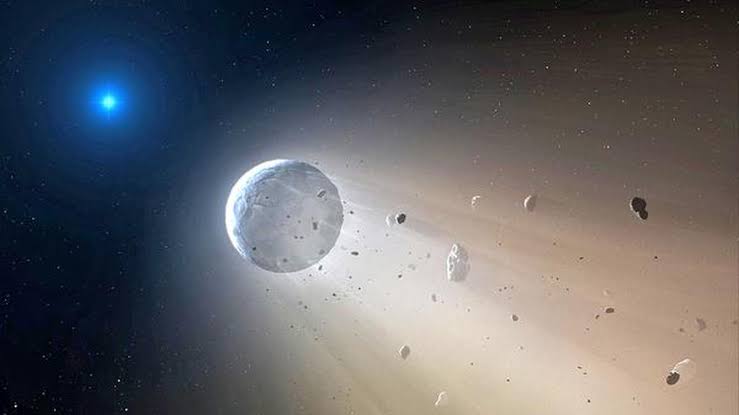The paper published in the Indian Academy of Sciences peer-reviewed journal Current Science last month stated that the meteorite that struck Gujarat’s Banaskantha area on August 17 of last year was a rare specimen of an aubrite spotted in India for the first time since 1852.
The aubrite, according to a group of scientists at the Physical Research Laboratory of the space department in Ahmedabad, mostly comprised enstatite, a mineral with properties resembling those of the material supposed to be present on Mercury’s surface.
The study asserted that the Indian subcontinent had a particularly strong history of meteorite falls (with over 450 to date). In Uttar Pradesh’s Gorakhpur, the last aubrite fall in India was recorded in 1852. According to the researchers, aubrites are unusual meteorites that formed from a solar system parent material with very little differentiation.
Coarse-grained igneous rocks called aubrites are produced by very reducing environments or by little to no free oxygen. They include a wide range of rare minerals that are not present on Earth.
“The similar and unique characteristics of highly reducing conditions on the surface of planet Mercury and aubrite often suggest that enstatite meteorites are the potential petrologic and geochemical analogs of planet Mercury, even though we do not have any known Mercurian samples in our collection. Therefore, this rare specimen of meteorite not only improves the existing meteoritic database but will be important for understanding the planetary processes in the future,” the paper said.
The meteorite’s fall was recorded by the Rantila village residents of Banaskantha. One of them reported hearing a loud noise that sounded like a passing jet plane. The meteorite fragmented after colliding with a neem tree limb. The largest chunk, which was collected by the people, was about 200 grams.
Around 10 km away from Rantila, a meteorite fragment crashed near Ravel village and made a loud noise. The piece left a tiny crater and damaged the porch’s floor tiles. The fragrance of the meteorite was reported by locals.
Also Read: Maharashtra Fumes As Assam Claims Sixth Jyotirlinga In Advertisement












